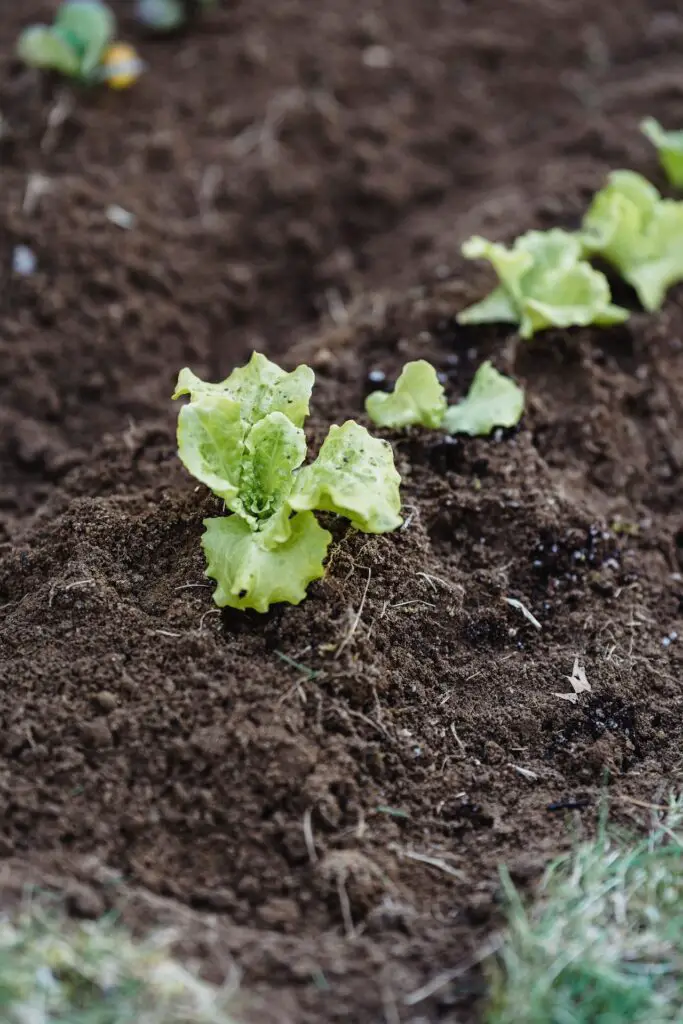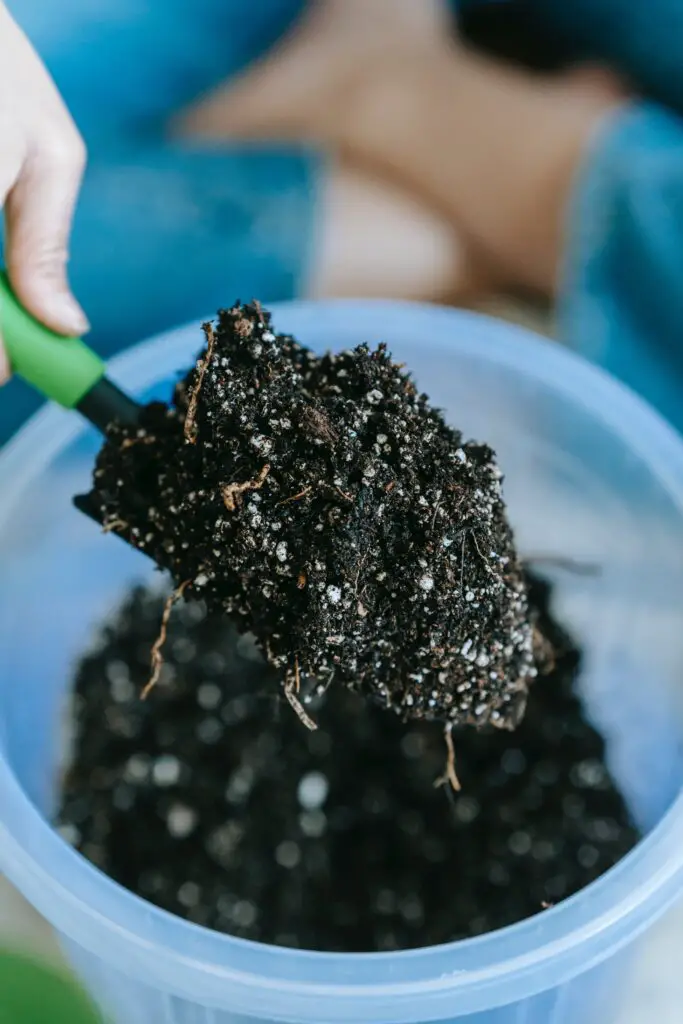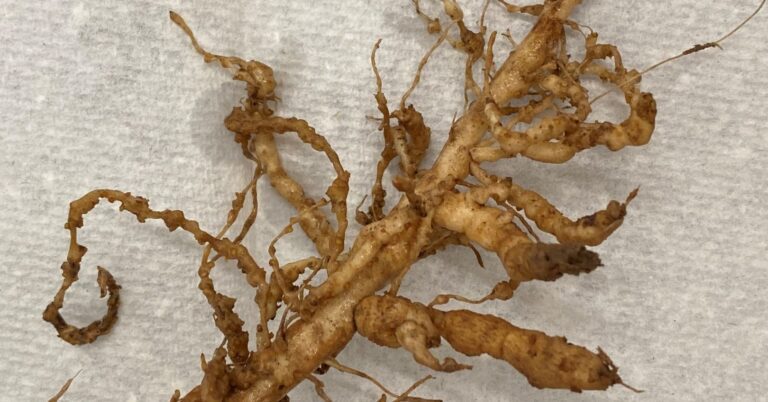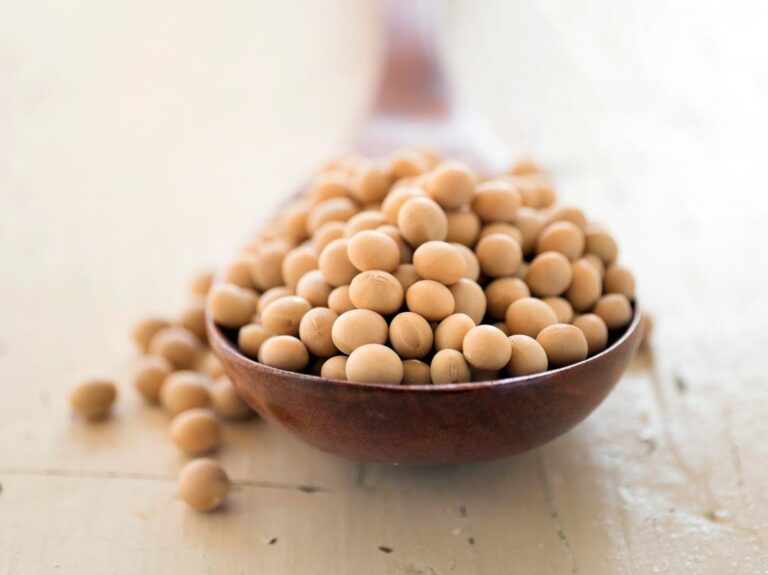Unlock Nature’s Secret with Fish Fertilizer
Table of Contents
The Nutritional Benefits of Fish Fertilizer for Plants
Fish fertilizer is a nutrient-rich organic fertilizer that offers numerous benefits for plant growth and development. Packed with essential nutrients such as nitrogen, phosphorus, and potassium, fish fertilizer provides a well-rounded source of nourishment for plants. These nutrients are crucial for various physiological processes in plants, including photosynthesis, root development, and overall growth. In addition to the primary macronutrients, fish fertilizer also contains a wide range of micronutrients that are essential for optimal plant health.
One of the key advantages of fish fertilizer is its high availability and fast absorption rate. The nutrients in fish fertilizer are in a form that plants can readily absorb and utilize, allowing for efficient nutrient uptake. This rapid availability of nutrients can help to stimulate plant growth and enhance overall plant vigor. Furthermore, fish fertilizer also acts as a natural soil conditioner, improving soil structure and promoting beneficial microbial activity. This, in turn, creates a favorable environment for plants, facilitating nutrient absorption and root development.
In summary, fish fertilizer offers numerous nutritional benefits for plants. Its nutrient-rich composition promotes healthy growth and development, while its fast absorption rate ensures efficient nutrient uptake. Additionally, the soil conditioning properties of fish fertilizer further enhance plant health and vitality. By incorporating fish fertilizer into your gardening practices, you can effectively boost plant growth and maximize the potential of your plants.
• Fish fertilizer is a nutrient-rich organic fertilizer that provides essential nutrients such as nitrogen, phosphorus, and potassium.
• These nutrients are crucial for various physiological processes in plants, including photosynthesis and root development.
• Fish fertilizer also contains a wide range of micronutrients that are essential for optimal plant health.
• One key advantage of fish fertilizer is its high availability and fast absorption rate by plants.
• The rapid availability of nutrients stimulates plant growth and enhances overall plant vigor.
• Fish fertilizer acts as a natural soil conditioner, improving soil structure and promoting beneficial microbial activity.
• This creates a favorable environment for plants, facilitating nutrient absorption and root development.
• By incorporating fish fertilizer into gardening practices, plant growth can be effectively boosted and the potential of plants maximized.

Enhancing Soil Quality with Fish Fertilizer
Enhancing soil quality is crucial for successful gardening and agriculture. One effective way to achieve this is by using fish fertilizer. Fish fertilizer is derived from fish waste and is rich in essential nutrients such as nitrogen, phosphorus, and potassium. These nutrients are essential for plant growth and development.
Fish fertilizer not only provides the necessary nutrients for plants but also improves the overall structure and composition of the soil. It helps to increase the organic matter content in the soil, which enhances its ability to retain moisture and nutrients. This, in turn, promotes better root development and nutrient uptake by plants.
Furthermore, fish fertilizer contains beneficial microorganisms that help in breaking down organic matter and releasing nutrients into forms readily available for plants. These microorganisms also improve soil microbial activity, which plays a vital role in nutrient cycling and overall soil health.
In addition to its nutrient content, fish fertilizer also acts as a natural defense against plant diseases and pests. It contains compounds that stimulate the plants’ natural defense mechanisms, making them more resistant to various pathogens and pests.
Overall, fish fertilizer is a sustainable and cost-effective option for enhancing soil quality in gardening and agriculture. Its nutrient-rich composition, ability to improve soil structure, and natural defense properties make it a valuable tool for gardening enthusiasts and farmers alike. By incorporating fish fertilizer into your gardening practices, you can boost plant growth, improve yields, and contribute to the overall health of your soil. So why not give it a try and see the remarkable benefits it can bring to your garden?
• Fish fertilizer is derived from fish waste and contains essential nutrients such as nitrogen, phosphorus, and potassium.
• It improves the overall structure and composition of the soil, increasing its ability to retain moisture and nutrients.
• Fish fertilizer contains beneficial microorganisms that break down organic matter and release nutrients for plants.
• It enhances soil microbial activity, which plays a vital role in nutrient cycling and overall soil health.
• Fish fertilizer acts as a natural defense against plant diseases and pests by stimulating the plants’ natural defense mechanisms.
• Using fish fertilizer is a sustainable and cost-effective option for enhancing soil quality in gardening and agriculture.
• It can boost plant growth, improve yields, and contribute to the overall health of your soil.
Improving Plant Growth and Yield with Fish Fertilizer
Fish fertilizer is a powerful tool for improving plant growth and maximizing yields in gardens and agricultural settings. This natural and sustainable fertilizer provides plants with essential nutrients such as nitrogen, phosphorus, and potassium, which are vital for healthy growth. Unlike synthetic fertilizers, fish fertilizer also contains micronutrients like calcium, magnesium, and zinc, which are often lacking in soil. These nutrients work in synergy to promote strong root development, lush foliage, and abundant flowering, resulting in improved overall plant health and vigor.
Studies have shown that the application of fish fertilizer can significantly increase crop yields. For example, a study conducted on tomato plants found that those treated with fish fertilizer produced larger fruits and higher yields compared to plants that received conventional nitrogen-based fertilizers. Additionally, research on various crops, including corn, soybeans, and wheat, has demonstrated that fish fertilizer application leads to increased nutrient absorption and utilization by plants, resulting in improved overall crop productivity.
The benefits of fish fertilizer extend beyond increased yields. This natural fertilizer also enhances the nutrient content of crops, improving their nutritional value. Studies have shown that plants treated with fish fertilizer have higher levels of vitamins, minerals, and antioxidants compared to those grown with synthetic fertilizers. This makes fish fertilizer an excellent choice for those who prioritize not only quantity but also quality in their harvests.
In conclusion, fish fertilizer is a valuable tool for gardeners and farmers looking to improve plant growth and maximize yields. Its unique blend of essential nutrients, micronutrients, and other beneficial compounds helps plants thrive, leading to stronger, healthier crops. Furthermore, the use of fish fertilizer not only increases yields but also enhances the nutritional content of crops, providing an added benefit for those seeking to promote overall well-being through their harvests.
• Fish fertilizer provides essential nutrients such as nitrogen, phosphorus, and potassium for healthy plant growth.
• Unlike synthetic fertilizers, fish fertilizer also contains micronutrients like calcium, magnesium, and zinc that are often lacking in soil.
• The combination of nutrients in fish fertilizer promotes strong root development, lush foliage, and abundant flowering.
• Studies have shown that the application of fish fertilizer can significantly increase crop yields.
• Tomato plants treated with fish fertilizer produced larger fruits and higher yields compared to those treated with conventional nitrogen-based fertilizers.
• Fish fertilizer improves nutrient absorption and utilization by plants, leading to improved overall crop productivity.
• Fish fertilizer enhances the nutritional value of crops by increasing their levels of vitamins, minerals, and antioxidants.
• Plants treated with fish fertilizer have higher levels of beneficial compounds compared to those grown with synthetic fertilizers.
• Using fish fertilizer not only increases yields but also promotes overall well-being through healthier harvests.

Boosting Nutrient Uptake in Plants with Fish Fertilizer
Fish fertilizer is a valuable tool for boosting nutrient uptake in plants, helping them thrive and reach their full potential. The high nutrient content of fish fertilizer, including essential elements like nitrogen, phosphorus, and potassium, provides plants with the building blocks they need for healthy growth. These nutrients are readily available in fish fertilizer, making them easily absorbed by plants, thus improving their nutrient uptake efficiency.
A study conducted by researchers at the University of Florida found that the use of fish fertilizer significantly increased nutrient uptake in tomato plants compared to traditional synthetic fertilizers. The study showed that plants treated with fish fertilizer had higher concentrations of essential nutrients in their tissues, such as nitrogen, phosphorus, and potassium, leading to improved plant growth and yield.
Furthermore, fish fertilizer contains beneficial organic compounds, such as amino acids and enzymes, which enhance nutrient absorption in plants. These compounds act as natural chelators, helping to solubilize essential nutrients in the soil and make them more available for root uptake. As a result, plants treated with fish fertilizer can take up and utilize nutrients more efficiently, leading to healthier and more productive crops.
In addition to its direct impact on nutrient uptake, fish fertilizer also promotes soil health and microbiological activity. The organic matter in fish fertilizer stimulates the growth of beneficial soil microorganisms, such as bacteria and fungi, which play a crucial role in nutrient cycling and availability. These microorganisms break down complex organic compounds in the soil, releasing nutrients that plants can absorb. As a result, the overall nutrient availability in the soil is improved, further enhancing nutrient uptake in plants.
Overall, fish fertilizer has proven to be an effective tool for boosting nutrient uptake in plants. Its high nutrient content, combined with beneficial organic compounds and the promotion of soil health, contribute to improved nutrient absorption and utilization by plants. Whether you are a home gardener or a commercial farmer, incorporating fish fertilizer into your fertilization regimen can help you achieve healthier plants and higher yields.
• Fish fertilizer is a valuable tool for boosting nutrient uptake in plants
• High nutrient content provides essential elements for healthy growth
• Nutrients are readily available and easily absorbed by plants
• Study shows fish fertilizer increases nutrient uptake in tomato plants compared to synthetic fertilizers
• Fish fertilizer contains beneficial organic compounds that enhance nutrient absorption
• Organic compounds act as natural chelators, making nutrients more available for root uptake
• Fish fertilizer promotes soil health and microbiological activity
• Stimulates growth of beneficial soil microorganisms
• Microorganisms break down organic compounds, releasing nutrients for plant absorption
• Overall, fish fertilizer improves nutrient availability and utilization in plants.
| Aspect | Fish Fertilizer |
|---|---|
| Nutrient Content | Rich in nitrogen, phosphorus, potassium, and micronutrients. Contains amino acids, proteins, and enzymes beneficial for plant growth. |
| Organic Matter | Contains organic matter that improves soil structure and promotes microbial activity, enhancing nutrient availability to plants. |
| Slow Release | Provides nutrients in a slow-release form, ensuring sustained availability to plants over time. This reduces the risk of nutrient leaching and waste. |
| Chelation | Chelates micronutrients, making them more readily available to plants and improving nutrient uptake efficiency. |
| Microbial Activity | Stimulates beneficial microbial activity in the soil, which aids in nutrient mineralization and decomposition of organic matter, further enhancing nutrient uptake. |
| pH Adjustment | Can help adjust soil pH towards a more neutral range, optimizing nutrient availability and uptake by plants. |
| Foliar Application | Can be applied as a foliar spray, allowing nutrients to be absorbed directly through the leaves, bypassing soil uptake limitations. |
| Versatility | Compatible with various growing methods, including hydroponics, container gardening, and traditional soil-based cultivation. |
| Sustainability | Derived from sustainable and renewable sources, making it environmentally friendly compared to synthetic fertilizers. |
The Role of Fish Fertilizer in Promoting Root Development
Fish fertilizer plays a crucial role in promoting root development in plants. The nutrient-rich composition of fish fertilizer provides the essential elements and compounds necessary for robust root growth. One of the key components of fish fertilizer is nitrogen, which is a vital nutrient for root development. Nitrogen promotes the growth of new root cells and encourages the formation of lateral roots, resulting in a more extensive and well-established root system.
In addition to nitrogen, fish fertilizer also contains other essential nutrients such as phosphorus and potassium. Phosphorus aids in the development of strong and healthy roots by enhancing energy transfer and promoting cell division. Potassium, on the other hand, assists in regulating osmotic pressure within the roots, improving their ability to absorb water and nutrients from the soil.
Furthermore, fish fertilizer contains beneficial microorganisms that contribute to root development. These microorganisms, including mycorrhizal fungi and beneficial bacteria, form symbiotic relationships with plant roots, aiding in nutrient uptake and improving overall root health. They also enhance the soil structure and create a favorable environment for root growth.
Overall, the use of fish fertilizer in gardening and agriculture can greatly benefit root development. Its nutrient-rich composition, combined with the presence of beneficial microorganisms, provides plants with the necessary resources to establish a strong and healthy root system. By incorporating fish fertilizer into their gardening practices, enthusiasts can promote optimal root growth, leading to improved plant health and enhanced overall productivity.
• Fish fertilizer contains nitrogen, which promotes the growth of new root cells and encourages the formation of lateral roots.
• Phosphorus in fish fertilizer enhances energy transfer and promotes cell division, resulting in strong and healthy roots.
• Potassium regulates osmotic pressure within roots, improving their ability to absorb water and nutrients from the soil.
• Beneficial microorganisms in fish fertilizer form symbiotic relationships with plant roots, aiding in nutrient uptake and improving overall root health.
• These microorganisms also enhance soil structure and create a favorable environment for root growth.
• The use of fish fertilizer can greatly benefit root development in gardening and agriculture.
• It provides plants with necessary resources for establishing a strong and healthy root system.
• Incorporating fish fertilizer into gardening practices promotes optimal root growth, leading to improved plant health.

Fish Fertilizer: A Natural Defense against Plant Diseases and Pests
Fish fertilizer offers more than just essential nutrients for plant growth; it also acts as a natural defense against plant diseases and pests. One of the key components of fish fertilizer is its high concentration of amino acids, which play a crucial role in enhancing the natural defense mechanisms of plants.
Amino acids are the building blocks of proteins, and they help strengthen plant cell walls, making them more resistant to disease-causing pathogens. Additionally, fish fertilizer contains chelated minerals, such as iron, zinc, and manganese, which are essential for the production of enzymes that play a vital role in plant immune responses.
Furthermore, the presence of beneficial microorganisms in fish fertilizer can contribute to defense against pests. These microorganisms, such as Bacillus subtilis and Trichoderma spp., colonize the root zones and establish a protective barrier against harmful parasites and nematodes. Their presence not only reduces the risk of pest infestations but also enhances the overall health and vigor of plants.
Incorporating fish fertilizer into your gardening routine can provide a natural and sustainable approach to combating plant diseases and pests. Its unique blend of nutrients, amino acids, and beneficial microorganisms offers an effective defense system that boosts plant resilience and contributes to healthier and more productive harvests.
• Fish fertilizer contains high concentrations of amino acids, which strengthen plant cell walls and make them more resistant to diseases.
• The chelated minerals in fish fertilizer, such as iron, zinc, and manganese, help produce enzymes that play a vital role in plant immune responses.
• Beneficial microorganisms present in fish fertilizer, like Bacillus subtilis and Trichoderma spp., establish a protective barrier against pests and parasites.
• These microorganisms reduce the risk of pest infestations and improve overall plant health and vigor.
• Incorporating fish fertilizer into gardening routines provides a natural and sustainable approach to combatting plant diseases and pests.
• The unique blend of nutrients, amino acids, and beneficial microorganisms in fish fertilizer enhances plant resilience for healthier harvests.
Increasing Soil Microbial Activity with Fish Fertilizer
Fish fertilizer is known for its ability to increase soil microbial activity, which plays a crucial role in plant growth and overall soil health. Soil microbes, including bacteria, fungi, and other microorganisms, perform essential functions such as nutrient cycling, organic matter decomposition, and disease suppression. By promoting the activity of these beneficial microbes, fish fertilizer helps create a thriving soil ecosystem that supports healthy plant growth.
One key way fish fertilizer enhances soil microbial activity is by providing a rich source of organic matter. Fish, being a natural source of nutrients, contains proteins, amino acids, and other organic compounds that serve as food for soil microorganisms. As these microorganisms decompose the fish fertilizer, they release nutrients and enzymes that further facilitate the breakdown of organic matter in the soil. This process not only improves soil structure but also increases the availability of essential nutrients for plant uptake.
Studies have shown that the application of fish fertilizer can significantly increase the populations and diversity of beneficial soil microbes. For instance, a research study conducted on tomato plants found that the use of fish-based fertilizer led to a higher abundance of beneficial bacteria and fungi in the rhizosphere, the region surrounding the roots. These microbes play a vital role in nutrient cycling by converting organic matter into plant-available forms and enhancing the availability of important nutrients like nitrogen and phosphorus. Overall, the increased microbial activity facilitated by fish fertilizer promotes a more balanced and fertile soil environment, positively impacting plant growth and productivity.
[Table – Beneficial microorganisms influenced by fish fertilizer]
In conclusion, fish fertilizer is a valuable tool for promoting soil microbial activity, which in turn improves overall soil quality and plant health. The organic matter present in fish fertilizer serves as a food source for beneficial soil microorganisms, stimulating their growth and activity. This leads to enhanced nutrient cycling, increased nutrient availability, and improved soil structure. By incorporating fish fertilizer into gardening practices, enthusiasts can harness the power of microbial interactions and create a thriving environment for healthy plants.
• Fish fertilizer is known for its ability to increase soil microbial activity, which plays a crucial role in plant growth and overall soil health.
• Soil microbes perform essential functions such as nutrient cycling, organic matter decomposition, and disease suppression.
• Fish fertilizer provides a rich source of organic matter, including proteins, amino acids, and other compounds that serve as food for soil microorganisms.
• Microorganisms decompose the fish fertilizer, releasing nutrients and enzymes that further facilitate the breakdown of organic matter in the soil.
• This process improves soil structure and increases the availability of essential nutrients for plant uptake.
• Studies have shown that fish-based fertilizers can significantly increase populations and diversity of beneficial soil microbes.
• Beneficial bacteria and fungi are more abundant in the rhizosphere when fish-based fertilizers are used on tomato plants.
• These microbes play a vital role in nutrient cycling by converting organic matter into plant-available forms and enhancing nutrient availability.
• Increased microbial activity facilitated by fish fertilizer promotes a more balanced and fertile soil environment, positively impacting plant growth.
Fish Fertilizer: A Sustainable Choice for Environmentally Friendly Gardening
Fish fertilizer is increasingly becoming a popular choice for environmentally friendly gardening enthusiasts. This sustainable option is derived from the byproducts of the fishing industry and offers numerous benefits for both plants and the ecosystem.
One of the key advantages of fish fertilizer is its high nutrient content. It is rich in essential macronutrients like nitrogen, phosphorus, and potassium, which are vital for plant growth and development. Additionally, it contains trace elements such as calcium, magnesium, and iron, which are important for overall plant health. These nutrients are readily available in fish fertilizer, allowing plants to efficiently absorb and utilize them.
Moreover, fish fertilizer promotes soil fertility and improves its structure. It helps replenish nutrient-depleted soil, providing a balanced and nutrient-rich environment for plants to thrive. The organic matter in fish fertilizer enhances soil structure, improving its water absorption, drainage, and aeration capabilities. This leads to healthier root systems and stronger plants.
Furthermore, fish fertilizer supports the growth of beneficial soil microorganisms. These microorganisms play a vital role in promoting plant health by breaking down organic matter, releasing nutrients, and suppressing harmful pathogens. By increasing microbial activity, fish fertilizer contributes to a balanced soil ecosystem, reducing the need for synthetic fertilizers and pesticides.
In conclusion, fish fertilizer is a sustainable choice for environmentally friendly gardening. With its nutrient-rich composition, soil-enhancing properties, and support for beneficial soil microorganisms, this organic fertilizer offers numerous advantages for plant growth and the overall ecosystem. Incorporating fish fertilizer into gardening practices can result in healthier plants, increased crop yields, and reduced environmental impact.
• Fish fertilizer is derived from the byproducts of the fishing industry, making it a sustainable choice for environmentally friendly gardening.
• It contains essential macronutrients like nitrogen, phosphorus, and potassium, as well as trace elements such as calcium, magnesium, and iron.
• The high nutrient content in fish fertilizer allows plants to efficiently absorb and utilize these nutrients.
• Fish fertilizer helps replenish nutrient-depleted soil and improves its structure for healthier root systems and stronger plants.
• It supports the growth of beneficial soil microorganisms that play a vital role in promoting plant health.
• By increasing microbial activity, fish fertilizer reduces the need for synthetic fertilizers and pesticides.
• Incorporating fish fertilizer into gardening practices can result in healthier plants, increased crop yields, and reduced environmental impact.
| Aspect | Fish Fertilizer |
|---|---|
| Source | Derived from fish byproducts such as fish emulsion, fish hydrolysate, or fish meal. |
| Nutrient Content | Rich in nitrogen, phosphorus, potassium, and trace minerals essential for plant growth. |
| Sustainability | Utilizes waste from the fishing industry, reducing environmental impact by repurposing fish byproducts that would otherwise be discarded. |
| Renewable Resource | Fish populations are renewable, making fish fertilizer a sustainable alternative to synthetic fertilizers derived from non-renewable sources. |
| Soil Health | Enhances soil structure and microbial activity, improving soil health and fertility over time. |
| Slow Release | Provides nutrients to plants in a slow-release manner, reducing the risk of nutrient leaching and runoff. |
| Organic Certification | Many fish fertilizers are certified organic, meeting standards for environmentally friendly gardening practices. |
| Environmental Impact | Generally has a lower environmental impact compared to synthetic fertilizers, as it does not involve the intensive manufacturing processes associated with chemical fertilizers. |
| Microbial Benefits | Contains beneficial microorganisms that contribute to soil and plant health, promoting natural ecosystem balance. |
| Cost-Effectiveness | Can be cost-effective compared to synthetic fertilizers, especially when considering its long-term benefits for soil and plant health. |
| Application Method | Can be applied as a liquid fertilizer or incorporated into the soil, providing flexibility in application methods based on gardening preferences. |
Maximizing Crop Resilience and Stress Tolerance with Fish Fertilizer
Maximizing crop resilience and stress tolerance is a crucial factor in achieving successful agricultural outcomes. Fish fertilizer has emerged as an effective tool in this regard, offering numerous benefits to plants when faced with environmental challenges.
One key aspect where fish fertilizer proves its worth is in enhancing the plants’ ability to withstand stress. The application of fish fertilizer has been found to stimulate the production of stress-related proteins within plants, enabling them to develop stronger defense mechanisms. This increased resilience helps plants combat various stressors such as extreme temperatures, drought, and disease outbreaks.
Moreover, fish fertilizer promotes the development of robust root systems. Strong roots contribute to better nutrient uptake, water absorption, and overall plant health. The rich concentration of essential nutrients in fish fertilizer, including nitrogen, phosphorus, and potassium, nourishes the roots and supports their growth. As a result, plants become more equipped to withstand adverse conditions and bounce back from stress more effectively.
In the next section, we will delve deeper into the specific mechanisms through which fish fertilizer imparts these benefits to plants, providing further insights into its potential as a vital component in agriculture.
• Fish fertilizer stimulates the production of stress-related proteins in plants, enhancing their ability to withstand environmental challenges.
• The increased resilience provided by fish fertilizer helps plants combat extreme temperatures, drought, and disease outbreaks.
• Fish fertilizer promotes the development of robust root systems, leading to better nutrient uptake and water absorption.
• The rich concentration of essential nutrients in fish fertilizer nourishes roots and supports their growth.
• Plants become more equipped to withstand adverse conditions and recover from stress more effectively with the help of fish fertilizer.
Fish Fertilizer: A Cost-Effective Option for Small-Scale and Large-Scale Agriculture
Fish fertilizer is gaining popularity in both small-scale and large-scale agriculture due to its cost-effectiveness. This type of fertilizer offers numerous benefits for plant growth and yield, making it an ideal choice for farmers and gardening enthusiasts looking for an affordable and efficient solution.
One of the key advantages of fish fertilizer is its high nutrient content. It is rich in essential elements such as nitrogen, phosphorus, and potassium, which are crucial for healthy plant development. These nutrients are readily available to plants, ensuring optimal growth and productivity. Additionally, fish fertilizer contains trace elements like calcium, magnesium, and iron, which are necessary for the overall well-being of plants. By providing a balanced combination of nutrients, fish fertilizer helps to meet the nutritional requirements of crops, promoting their resilience and improving their ability to withstand environmental stresses.
Moreover, fish fertilizer is a sustainable choice for agriculture. It is a byproduct from the fishing industry, utilizing fish waste that would otherwise go to waste. By recycling this waste into fertilizer, farmers can reduce their environmental impact while utilizing a valuable resource. This not only helps to minimize waste but also contributes to the circular economy, creating a more sustainable and efficient agricultural system. Additionally, fish fertilizer is often produced using natural and organic methods, making it a favorable option for environmentally friendly gardening practices.
Overall, fish fertilizer offers a cost-effective solution for both small-scale and large-scale agriculture. Its nutrient-rich composition and sustainable production methods make it a practical choice for farmers and gardeners looking to optimize plant growth, improve soil quality, and enhance crop resilience. As the demand for sustainable and affordable agricultural practices continues to grow, fish fertilizer presents itself as a compelling option for those seeking both economic and environmental benefits.
• Fish fertilizer is rich in essential elements such as nitrogen, phosphorus, and potassium
• It also contains trace elements like calcium, magnesium, and iron
• Provides a balanced combination of nutrients for optimal plant growth and productivity
• Helps meet the nutritional requirements of crops and improves their ability to withstand environmental stresses
• Fish fertilizer is a sustainable choice as it utilizes fish waste that would otherwise go to waste
• Reduces environmental impact by recycling waste into valuable fertilizer
• Contributes to the circular economy by creating a more sustainable and efficient agricultural system
• Often produced using natural and organic methods, making it favorable for environmentally friendly gardening practices
• Offers a cost-effective solution for farmers and gardeners looking to optimize plant growth
and improve soil quality.
• Enhances crop resilience while being economically feasible.
Best Practices for Applying Fish Fertilizer to Your Garden
Applying fish fertilizer to your garden can be an effective way to boost plant growth and improve soil quality. However, it is important to follow best practices to ensure optimal results.
Firstly, timing is crucial when applying fish fertilizer. It is recommended to apply the fertilizer during the early stages of plant growth or as a side dressing during the growing season. This allows the plants to benefit from the nutrients when they need it the most. Additionally, avoid applying the fertilizer when the weather is hot and dry, as it may lead to nutrient burn or increase the risk of odor issues.
Secondly, proper dosage is essential for the health of your plants and the environment. Read the instructions on the fertilizer packaging and follow the recommended application rates. Over-application can potentially harm the plants and contribute to nutrient runoff, which can negatively impact nearby water bodies. It is always better to start with a lower dosage and gradually increase if necessary, depending on the specific needs of your plants.
By adhering to these best practices when applying fish fertilizer to your garden, you can ensure that your plants receive the nutritional benefits they need, while also promoting environmental sustainability. Remember, a little goes a long way, so use it wisely and watch your garden thrive.
• Timing is crucial when applying fish fertilizer. Apply during early stages of plant growth or as a side dressing during the growing season.
• Avoid applying fish fertilizer when the weather is hot and dry to prevent nutrient burn and odor issues.
• Proper dosage is essential for plant health and environmental sustainability. Follow instructions on the packaging and use recommended application rates.
• Over-application can harm plants and contribute to nutrient runoff, negatively impacting nearby water bodies.
• Start with a lower dosage and gradually increase if necessary, based on your plants’ specific needs.
• By following these best practices, you can ensure that your plants receive the nutritional benefits they need while promoting environmental sustainability.

Understanding the Different Types of Fish Fertilizer and Their Uses
Fish fertilizer is a valuable tool for gardeners and farmers alike, providing a natural and sustainable source of essential nutrients for plants. Understanding the different types of fish fertilizer and their uses can help maximize their benefits in various agricultural settings.
There are two main types of fish fertilizer: liquid and granular. Liquid fish fertilizer is made by emulsifying fish parts or whole fish with water, creating a concentrated solution that can be easily applied to plants. It is highly soluble and quickly absorbed by plant roots, providing a fast-acting source of nutrients. Granular fish fertilizer, on the other hand, is made by drying and grinding fish parts into a powder or pelleted form. It releases nutrients slowly over time, providing a more sustained source of nourishment for plants.
Liquid fish fertilizer is particularly effective for fast-growing plants or those in need of an immediate boost, such as vegetables, annual flowers, and container plants. Its rapid absorption rate allows plants to quickly access the nutrients they need for vigorous growth. Granular fish fertilizer, on the other hand, is well-suited for long-term soil enrichment and feeding perennial plants. Its slow-release properties ensure a steady supply of nutrients, promoting steady and consistent growth.
Regardless of the type of fish fertilizer chosen, it is important to select a high-quality product that has been properly processed and sourced from sustainable fisheries. This ensures that the fertilizer is free from contaminants and provides a reliable source of nutrients for plants. By understanding the different types of fish fertilizer and their uses, gardeners and farmers can make informed decisions to enhance the health and productivity of their plants.
• Liquid fish fertilizer is made by emulsifying fish parts or whole fish with water, creating a concentrated solution that can be easily applied to plants.
• It is highly soluble and quickly absorbed by plant roots, providing a fast-acting source of nutrients.
• Granular fish fertilizer is made by drying and grinding fish parts into a powder or pelleted form.
• It releases nutrients slowly over time, providing a more sustained source of nourishment for plants.
• Liquid fish fertilizer is effective for fast-growing plants or those in need of an immediate boost, such as vegetables, annual flowers, and container plants.
• Its rapid absorption rate allows plants to quickly access the nutrients they need for vigorous growth.
• Granular fish fertilizer is well-suited for long-term soil enrichment and feeding perennial plants.
• Its slow-release properties ensure a steady supply of nutrients, promoting steady and consistent growth.
• Regardless of the type chosen, it’s important to select high-quality fish fertilizers that have been properly processed.
• The product should also be sourced from sustainable fisheries to ensure it’s free from contaminants.
• This will provide reliable sources of nutrients for healthy plant growth.
By understanding the different types of fish fertilizers available and their specific uses,
gardeners and farmers can make informed decisions on which type will best suit their needs.
Common Misconceptions about Fish Fertilizer Debunked
Fish fertilizer has gained popularity among gardeners and farmers for its numerous benefits, but there are also common misconceptions surrounding its use. One such misconception is that fish fertilizer has a strong and unpleasant odor. While it is true that fish fertilizer can have a distinct smell, not all fish fertilizers are created equal. Modern fish fertilizers are processed and refined to reduce the odor significantly, making them more convenient to use. In fact, some fish fertilizers are even formulated with natural additives to further mask any potential odor. So, rest assured that using fish fertilizer in your garden or farm doesn’t mean you’ll have to endure a pungent smell.
Another misconception about fish fertilizer is that it attracts pests and insects to your plants. This belief stems from the idea that the strong smell of fish would naturally attract unwanted visitors. However, when properly applied, fish fertilizer does not attract pests. In fact, it can actually help deter certain pests and insects. Fish fertilizer contains high levels of nutrients, which helps plants grow stronger and healthier, making them more resistant to pests and diseases. Additionally, fish fertilizer promotes the growth of beneficial microorganisms in the soil, which can help prevent or suppress harmful pests. So, contrary to popular belief, using fish fertilizer can actually contribute to a healthier and pest-resistant garden or farm.
In conclusion, it’s important to address the common misconceptions surrounding fish fertilizer. While it does have a distinct smell, modern refinements have significantly reduced the odor. Additionally, when properly applied, fish fertilizer does not attract pests, but rather helps plants grow stronger and more resistant to pests and diseases. It’s essential to consider the facts and benefits of fish fertilizer, as it can be a valuable asset in promoting plant growth and improving soil quality.
• Fish fertilizer has a distinct smell, but modern refinements have significantly reduced the odor.
• Some fish fertilizers are formulated with natural additives to further mask any potential odor.
• Properly applied fish fertilizer does not attract pests, but rather helps plants grow stronger and more resistant to pests and diseases.
• Fish fertilizer promotes the growth of beneficial microorganisms in the soil, which can help prevent or suppress harmful pests.
Exploring the Future Potential of Fish Fertilizer in Agriculture
Fish fertilizer has gained popularity in recent years as a natural and sustainable option for enhancing agricultural practices. With increasing concerns about the environmental impact of conventional fertilizers, researchers and farmers are exploring the future potential of fish fertilizer in agriculture.
One of the key advantages of fish fertilizer is its rich nutrient content. Fish, especially oily types like salmon and sardines, are packed with essential nutrients such as nitrogen, phosphorus, and potassium (NPK). These nutrients are crucial for plant growth and development, and fish fertilizer provides them in a readily available form. Additionally, fish fertilizer also contains micronutrients like calcium, magnesium, and trace elements, which are vital for healthy plant growth. This comprehensive nutrient profile makes fish fertilizer a valuable resource for replenishing soil health and promoting optimum plant nutrient uptake.
Moreover, fish fertilizer has been found to improve soil microbial activity. The beneficial microorganisms in the soil play a crucial role in nutrient cycling and plant health. Studies have shown that fish fertilizer can boost the abundance and diversity of these beneficial microorganisms, leading to improved soil fertility and plant resilience. Furthermore, the organic matter present in fish fertilizer acts as a food source for the soil microbes, creating a thriving ecosystem that promotes nutrient availability and reduces the risk of diseases.
The potential of fish fertilizer in agriculture goes beyond its nutritional and microbial benefits. Fish fertilizer has also shown promise in reducing dependency on chemical inputs, enhancing crop resilience against environmental stressors, and contributing to sustainable farming practices. As research and innovation in this field continue to evolve, it is important for farmers and gardeners to stay informed about the latest developments and best practices in utilizing fish fertilizer effectively. By doing so, we can maximize the future potential of fish fertilizer and pave the way for a more sustainable and environmentally friendly approach to agriculture.
• Fish fertilizer is a natural and sustainable option for enhancing agricultural practices.
• It contains essential nutrients such as nitrogen, phosphorus, and potassium (NPK) in a readily available form.
• Fish fertilizer also contains micronutrients like calcium, magnesium, and trace elements that are vital for healthy plant growth.
• It improves soil microbial activity, leading to improved soil fertility and plant resilience.
• The organic matter in fish fertilizer acts as a food source for soil microbes, promoting nutrient availability and reducing the risk of diseases.
• Fish fertilizer reduces dependency on chemical inputs and enhances crop resilience against environmental stressors.
• Staying informed about the latest developments and best practices in utilizing fish fertilizer can maximize its potential in agriculture.
What is fish fertilizer?
Fish fertilizer is a natural organic fertilizer made from the remains or byproducts of fish processing. It is rich in essential nutrients and beneficial compounds that can enhance plant growth and improve soil health.
How does fish fertilizer benefit plants?
Fish fertilizer provides plants with a wide range of essential nutrients, including nitrogen, phosphorus, and potassium, which are necessary for their growth and development. It also contains trace minerals and organic matter that improve soil quality and promote healthy root development.
Can fish fertilizer be used on all types of plants?
Yes, fish fertilizer can be used on a variety of plants, including vegetables, fruits, herbs, flowers, and ornamental plants. It is suitable for both indoor and outdoor gardening.
Is fish fertilizer safe for the environment?
Yes, fish fertilizer is considered to be an environmentally friendly option for gardening and agriculture. It is derived from natural sources and does not contain harmful chemicals or synthetic additives.
How should fish fertilizer be applied to plants?
Fish fertilizer can be applied directly to the soil or as a foliar spray. It is recommended to dilute the fertilizer with water according to the manufacturer’s instructions before application. It is important not to overuse fish fertilizer, as excessive amounts can burn plant roots.
Can fish fertilizer replace other types of fertilizers?
Fish fertilizer can be a valuable addition to a fertilization program, but it may not completely replace other types of fertilizers. Depending on the specific needs of your plants, a combination of different fertilizers may be necessary for optimal growth.
Does fish fertilizer have any odor?
Yes, fish fertilizer can have a strong odor due to its organic nature. However, some fish fertilizers are processed to reduce the odor, making them more suitable for indoor gardening or areas where odor sensitivity is a concern.
Can fish fertilizer attract pests?
While fish fertilizer itself does not attract pests, the organic matter in the fertilizer can potentially attract certain insects or animals. It is important to maintain proper pest control practices in your garden to prevent any issues.
Are there any potential drawbacks to using fish fertilizer?
One potential drawback of fish fertilizer is its relatively high cost compared to synthetic fertilizers. Additionally, some people may find the odor unpleasant. However, when used correctly, fish fertilizer can provide numerous benefits for plant growth and soil health.
Is fish fertilizer suitable for large-scale agriculture?
Yes, fish fertilizer can be used in both small-scale and large-scale agriculture. It is a cost-effective option for improving soil fertility and enhancing crop yields. However, proper application techniques and dosage calculations should be followed to ensure optimal results.

Ankit Garg is a seasoned writer at South El Monte Hydroponics, blending his passion for agriculture with a penchant for storytelling. With a degree in Agricultural Sciences from a prestigious institution, Ankit’s expertise lies in hydroponics, sustainable farming, and innovative cultivation techniques. His keen interest in exploring the intersection of technology and agriculture has led him to delve deep into the realm of hydroponic farming, where he thrives in uncovering the latest advancements and sharing insights through his engaging prose. Ankit’s dedication to promoting eco-friendly and efficient farming practices through his writing has earned him recognition within the agricultural community and beyond.







